That's Putin celebrating the Day of State Security Worker. Indeed, the domination of State Security "the new nobility" over all other institutions is a particular feature of Putin's regime. Which hadn't been the case in USSR. State security rule is the major innovation of Putin🧵 

USSR wasn't run by the state security. It was run by the Party. The Party was the supreme institution controlling all others, including KGB. Party had its cells in every KGB office, which had to control KGB and report on it. KGB activities were checked by the Party commissars 

Of course cadre decisions in KGB were done by the Party. Since the cleansing of Beria's henchmen in 1950s KGB was never ever led by career KGB officers. All the KGB chiefs were political appointees from the Party nomenklatura. They were always outsiders, "suits" 

Consider Andropov, now regarded as a patron saint of the KGB. What was his track? Firstly, Komsomol of course. Then the Party work in Karelia. Then diplomatic service. Then a secretary of Central Committee of the Party. And only at the age of 53 he is appointed as the KGB Chief 
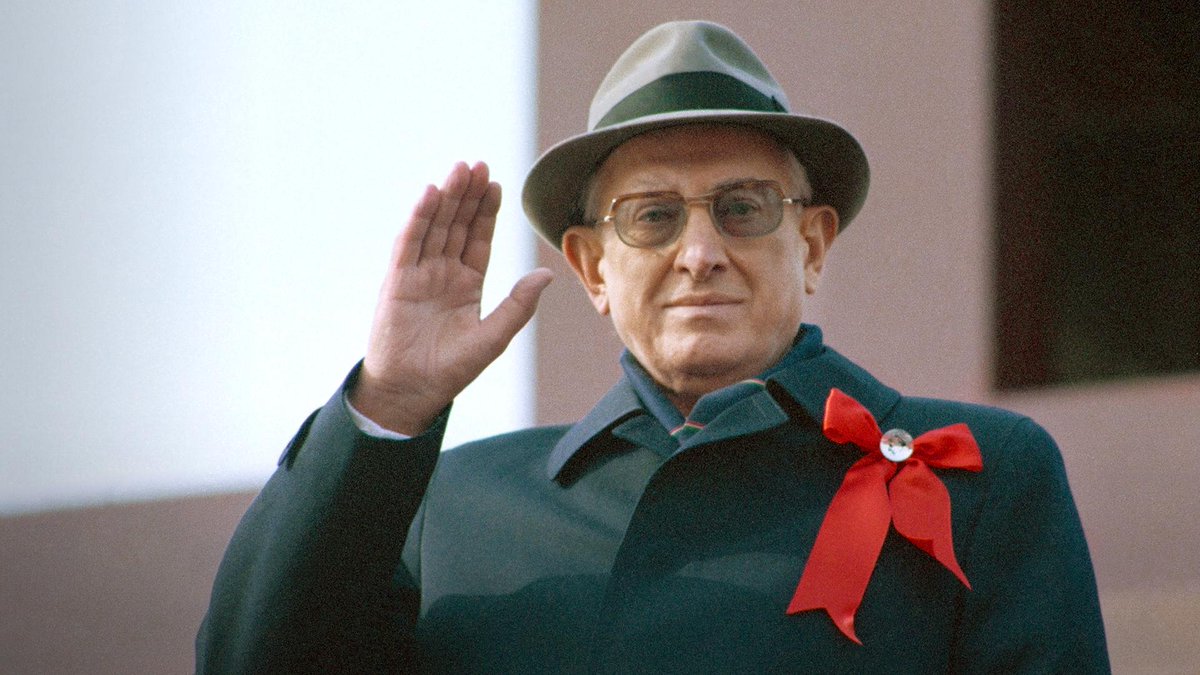
Here's a good illustration of how the Party state is run. You have state institutions which are theoretically powerful. But that's an illusion. All the cadre decisions, all the policy-making is run by a political organisation, the Party. The Party is subject, the rest are objects 

The USSR was the best-known and a kinda model Party state. But it wasn't the first. The functional model of such a regime was first built in the Ottoman Empire in 1908-1913 as a result of what is incorrectly called the "Young Turk Revolution". Which is not a very good term 

To start with, the name "Young Turks" was invented by French journos. The real name was "The Committee for Union and Progress". Which reflects the vibe and ideology. We represent science and reason, which is the source of our legitimacy rather than "tradition" or "elections" 
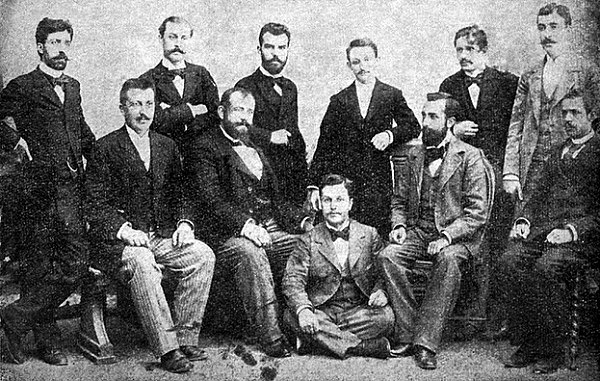
It was a hierarchical organisation with positivist ideology, party discipline, rule by the Central Committee. They never won elections and in 1908-1913 were formally "in opposition". Which didn't fool anyone. Everyone knew decisions are made by this Party, not by the "ruling" one 

So all the state institutions, including the monarchy and the army were submitted by a very ideological political party which ruled in the name of reason. And that worked. Which had profound cultural impact on many countries, but most importantly on Russia 

Let me introduce Buffet's concept of institutional inertia. We greatly exaggerate both "originality" and "independence" of our thought. We're not that original. If we do something it's 99% because we already saw that someone else did it and it worked. We're very imitative species 

Interest groups in Russia fascinated by the success of the Committee started calling themselves "Young Turks", hoping to imitate their success. Most importantly, it was a group of ambitious military officers led by the Grand Duch Nikolay Nikolayevich (right), uncle of the Tsar 

Dismissal of Nikolay Nikolaevich and the assumption of Commander-in-Chief role by Nicholas II greatly exacerbated the conflict. Especially considering that most of influential generals were appointees of the Grand Duc. Since November 1916 generals were contemplating Tsar's arrest 

If they wanted to imitate the Young Turk success, they were mistaken. In chaos that followed Tsar's abdication, most of them died, often in horrible manner. Ultimately it was another underdog group of ideologues that hijacked the state and built the party regime - the Bolsheviks 

For decades the Party regime stood strong. It controlled the state, controlled the army, controlled the state security. After Stalin's death the Party purged the state security with certain vindictiveness, making sure these guys would never ever dare to touch nomenklatura 

But by the late 1970s bad symptoms started appearing. The most obvious one was gerontocracy - bosses simply grew old, dysfunctional and refused to go. But there were less obvious markers of decline 

Soviet Constitution of 1977 said in Article 6:
"The Party is the leading and organising force, the core of the state. Party determines the general direction of progress, foreign and domestic policy of USSR, gives scientific, evidence-based character to its fight for Communism"
"The Party is the leading and organising force, the core of the state. Party determines the general direction of progress, foreign and domestic policy of USSR, gives scientific, evidence-based character to its fight for Communism"
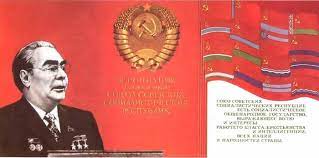
Previous Constitutions were different. The one of 1924 didn't mention the Party at all. 1936 one mentioned it only in the Article 126 as one of many NGOs. Only in one phrase it specified that the Party "represents the leading core of all organizations", but it was kinda lowkey 
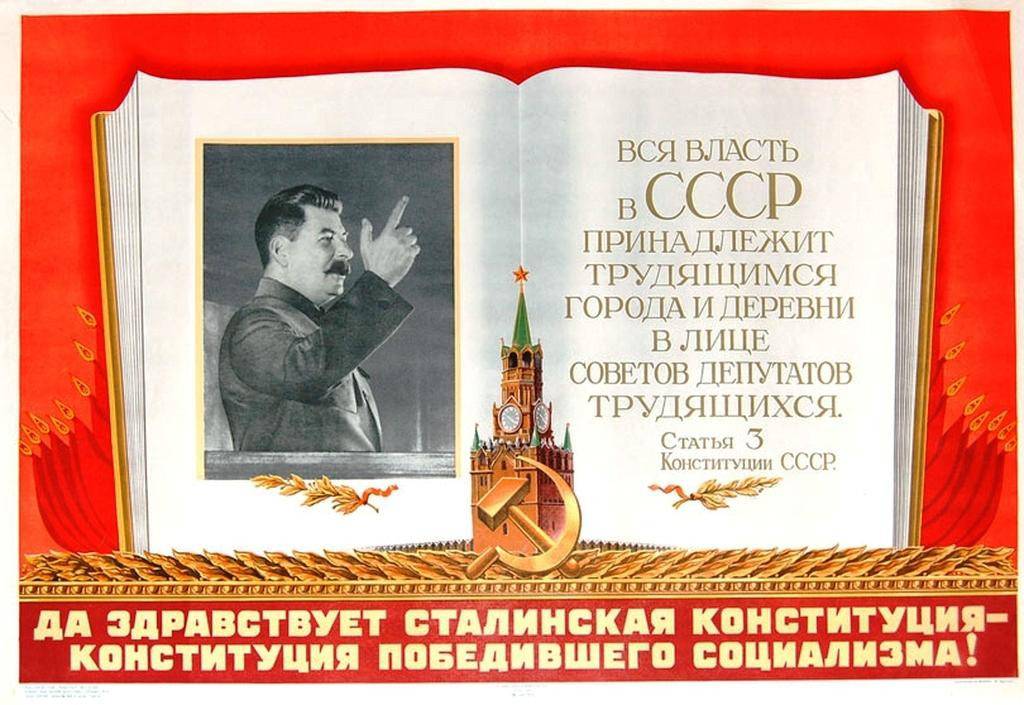
The less belief in Communism remained, the more clearly had the Party to specify its role. In the heyday of the USSR its rule was based on the implicit, unwritten law. During the decline it became explicit, written one. The rise in formal authority = decline in actual power 

Which reflects a more general, meta rule: Omnis determinatio est negatio = Every determination is a negation. If you clearly define your authority that looks like a powerful move, but it's not. Firstly, if you were really that powerful why would you even need to say it out loud?
Secondly, counterintuitively it may sound, every such definition is a point of failure. Whatever determined by a statute, can and will be abolished by a statute. By defining your privilege, you give your rivals clear concept of what they are fighting with and a target to attack
It's so much harder to fight against sth vague and elusive than with what your enemy had so conveniently defined and put as a target. Once the Party rule was codified as the Article 6 of the Constitution, it became such a target. In 1989, Article 6 was abolished. The Party fell 
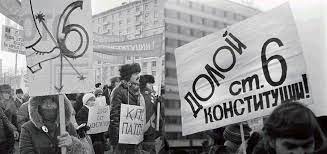
After the fall of the USSR many demanded the full scale lustration of KGB or even of the Party as a whole - like in Eastern Europe. Which didn't happen of course for the obvious reason that all people who mattered within the new regime had been Party members and many had KGB past 

Instead new president Yeltsin broke KGB into a number of organisations. SVR did foreign intelligence. FSO guarded the president. FAPSI managed data and communications. What remained from KGB was first called as MB (ministry of security) and then FSK - counterintelligence service
This was largely divide et impera logic. Let them fight and the president rule them all. What was the hierarchy of these services? FSK was the lowest. Less paid, less privilege, lesser rank. FSO, FAPSI and SVR ranked higher. The top one was new - Presidential Security Service 
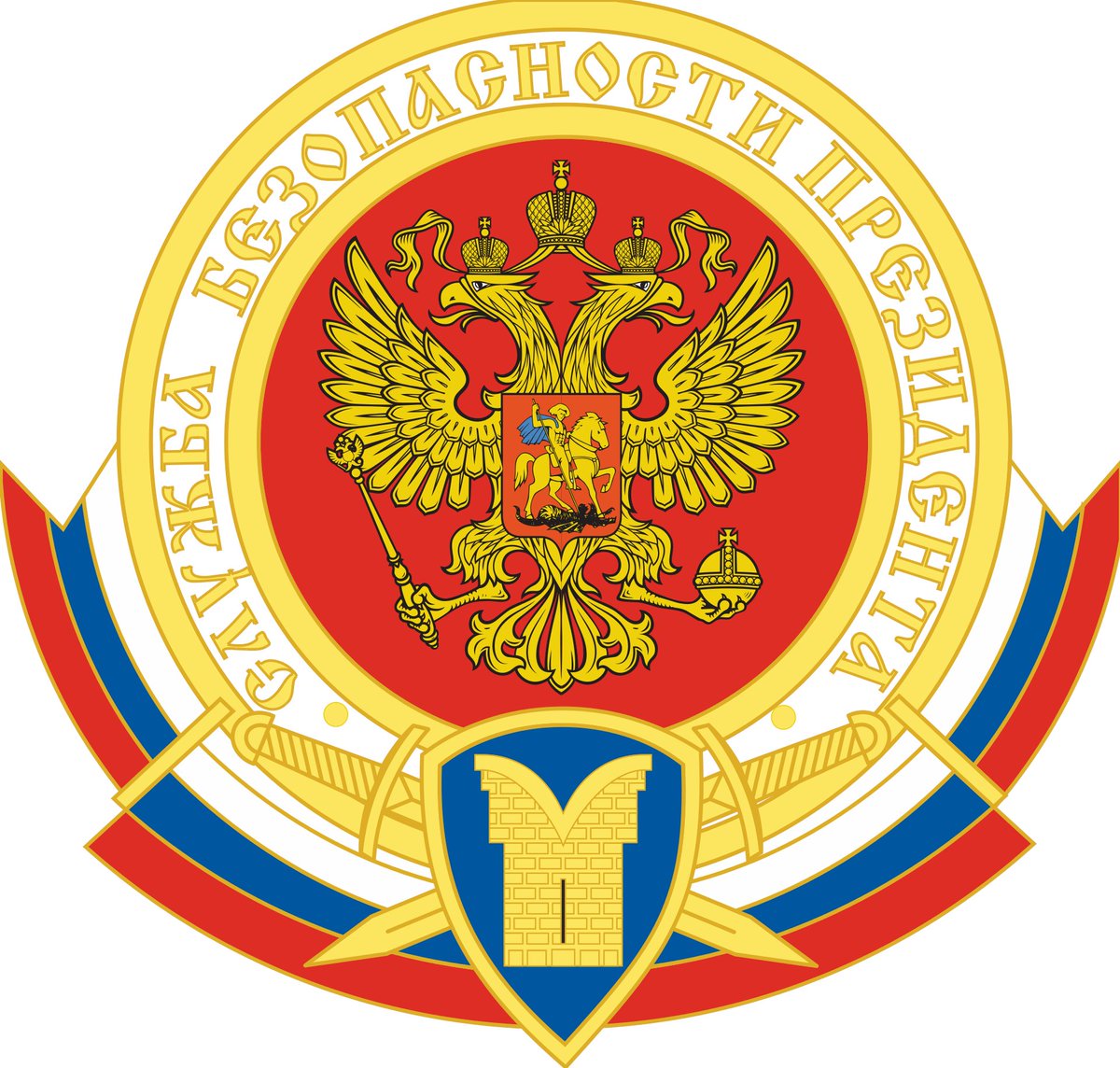
It was led by Korzhakov, super powerful guy of that era. He was a minor KGB officer assigned to guard Yeltsin, then a regular Party boss. Once Yeltsin was fired and started his contest for power, Korzhakov became his main "gun". After Yeltsin's victory he became all-powerful 

Korzhakov didn't only guard the Yeltsin. He controlled "access to the body" which means everything in Russia. Within few years, all main intelligence services were led by his appointees, Korzhakov being the main "silovik" (a boss using force) of that age 
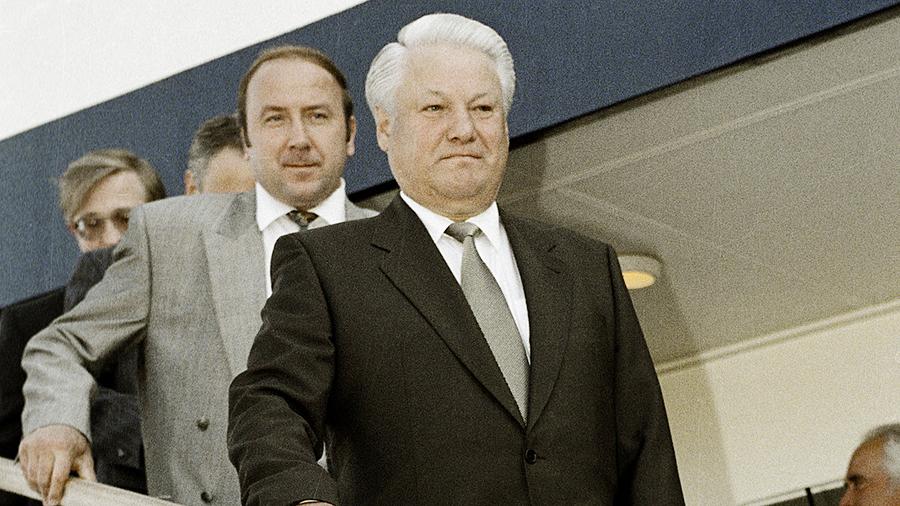
Korzhakov was an old companion of Yeltsin. But he was erratic, unreliable, extremely corrupt. It was not only that he used his powers mostly for self-enrichment, it's that he was very dysfunctional as the chief of security. While being a good bodyguard, he was a terrible manager 

There were two main events in state security history. First, the downfall of Korzhakov. Yeltsin faced elections in 1996 with like 6% approval rate. What shall we do? Korzhakov said - disband Parliament and rule by force. Ofc he wanted it, that would increase his personal power 
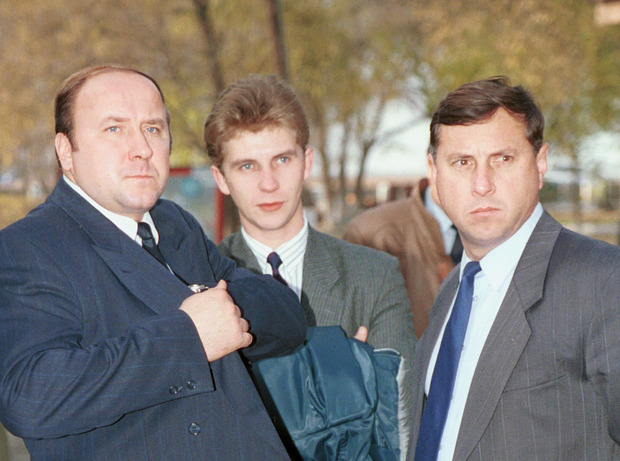
Civilian administration, most importantly, Chubais disagreed. Let me use some street magic, said Chubais, and I'll secure your victory, no matter the approval rate. Korzhakov was angry ofc: if Chubais manages the reelection, it would make him more powerful, and Korzhakov less 

Few days after the first indecisive election tour, Korzhakov's officers arrested two Yeltsin's campaign staffers. They were leaving the Government house with a Xerox box filled with 538 000 usd cash. A huge scandal followed - ofc it was dirty money for Yeltsin's reelection 

Korzhakov hoped this sabotage will destroy the regular reelection campaign and make Yeltsin accept Korzhakov's idea on how to secure the power. Instead, it destroyed him. After this Xerox affair, Yeltsin fired Korzhakov and purged his appointees from all the security services 

Xerox affair was a major milestone. It showed Yeltsin that current leadership of state security was untrustworthy. They gotta go. Another milestone was the First Chechen war, which Russian forces lost badly despite huge superiority. The security apparatus was dysfunctional 

Thus Yeltsin starts to restore security apparatus to its former flory. In 1995 the largest of KGB remnants, FSK, was renamed to the FSB. From the *Counterintelligence* to the *Security* Service. Agenda changed: counterintelligence is specifiс, while security is about everything 
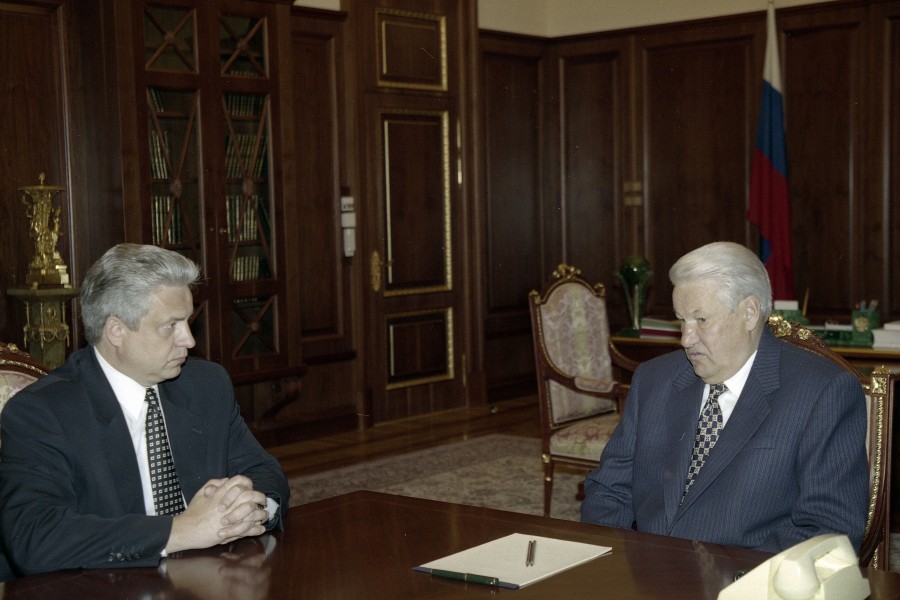
Many perceive the rise of Putin as a sort of historical aberration. And yet, *all* three last prime ministers of Yeltsin were career intelligence officers. Primakov was. Stepashin was. And finally Putin was. It's not an accident, it's deliberate policy. Promote state security 

It looks as if around 1998 Yeltsin made up his mind that he's gonna delegate power to the former KGB establishment and was just looking for someone reliable and trustworthy. It's difficult to interpret the cadre policy by the end of his reign otherwise. All 3 last PMs - from KGB 

The appointment of Putin as the FSB Chief was clearly in line with this promotion strategy. He raised the salaries and ranks of the FSB to FAPSI and SVR level. He allowed FSB leadership to privatise much of KGB real estate in Moscow which immediately turned them into millionaires 

In December 1999 during the Checkist Day celebration, new Prime Minister Putin declared:
«I wanna report that a group of FSB agents infiltrated into the government for the undercover work are dealing with their task well"
Not quite true. He was appointed rather than infiltrated
«I wanna report that a group of FSB agents infiltrated into the government for the undercover work are dealing with their task well"
Not quite true. He was appointed rather than infiltrated

And yet, Putin's message though presented as a joke was powerful. We, state security, did successfully hijack the state. We'd been hound dogs of the Party once. But the Party's gone and now we'll become what the Party used to be. We are now the only subject, the rest are objects 

New FSB Chief Patrushev, an old Petersburg pal, told that his agentscomprise the "new nobility" (неодворяне). That's important. State Security is very unideological. They strive for power, for money, for status. They may have grown in the USSR, but they wanna be aristocrats 

In a sense, FSB took functions of the Party. The Party permeated all institutions and controlled them through their comissars. Now FSB sent its overwatchers everywhere from the ministries to the private banks. It's now the leading and organising power which the Party used to be 
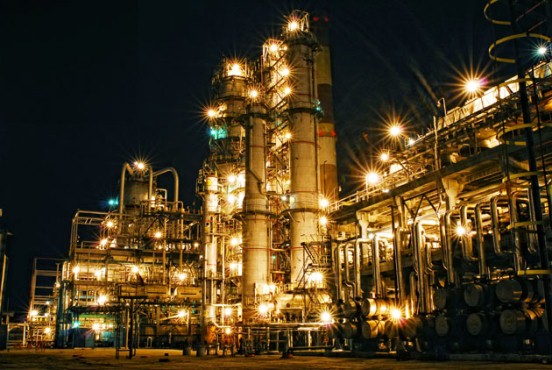
There are certain differences however. For the Party bosses it was really hard to cash out. They were powerful, but not rich. That's why most of Soviet patriciate inherited from their forefathers only their apartments. Meanwhile, FSB bosses and their families became really rich 

Another difference is the lack of ideology. Of course there are certain tendencies: statism, orthodox observance, Russian ethnonationalism. And yet, that's far less important, than Soviet ideology for the Party. In fact, state security was more statist than Marxist even back then 

And finally the FSB is different from the Party in one crucial respect. The Party aimed to lead society to progress through "science" and "reason". This path was bloody. And yet, they actually built stuff. Like a lot of stuff. Because in their heyday they were obsessed ideologues 

The state security are different. They aren't obsessed. Thus they build only what they consider vital. Which is securing the export of raw materials, including:
1. Seaports to export commodities
2. Railways to bring commodities to seaports
3. Pipelines
And nothing else matters
1. Seaports to export commodities
2. Railways to bring commodities to seaports
3. Pipelines
And nothing else matters

In a sense, that marks return to normality. Securing
1) sources of raw goods
2) export routes for raw goods
Has been the focus of Russian political economy at least since 1550s. I'll cover it in blogposts on Why Russia got so big and on the Putinomics
1) sources of raw goods
2) export routes for raw goods
Has been the focus of Russian political economy at least since 1550s. I'll cover it in blogposts on Why Russia got so big and on the Putinomics
But for now I wanna stress: all projects of Russian "industrialisation" and so on are BS. Economists who write all of this presume that Russia's still run by ideologues, religious fanatics like in the 1930s. But it's not. State security are more like mafia than like Bolsheviks 

Which means FSB is passive. On a surface level this is reflected in export revenues being spent on London real estate rather than on plants or dams. But if we think in the higher orders, Bolsheviks wanted to change everything, while FSB would prefer everything to stay the same 
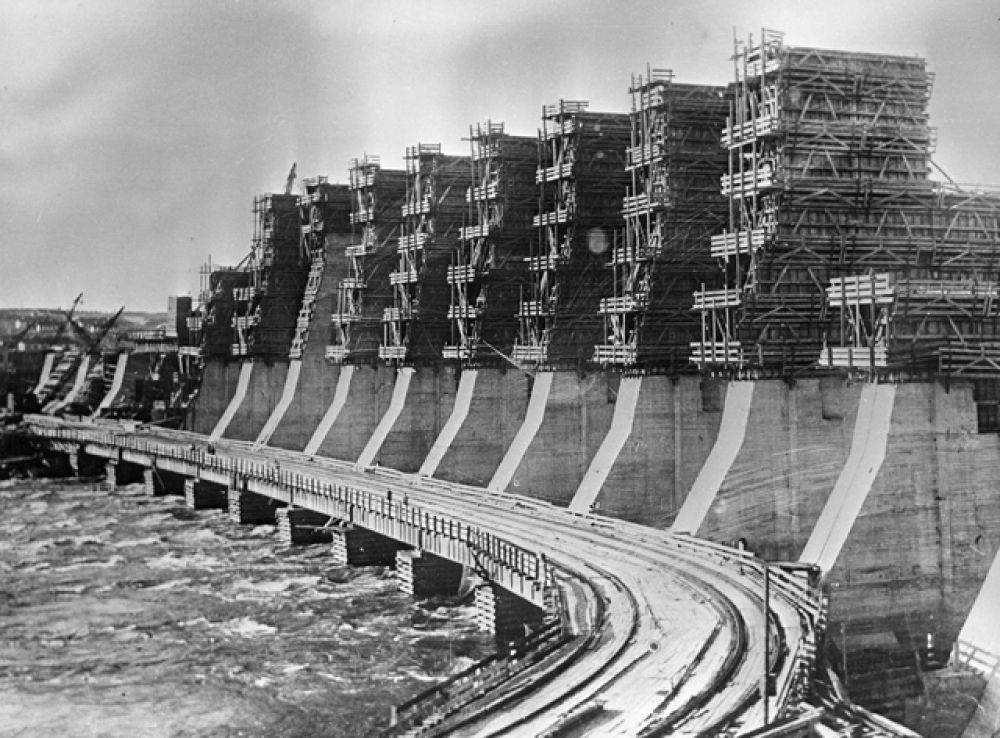
Which is why I'm sceptical about the prospects of Putinism. FSB is a service created to prevent *wrong* changes. Ofc it evolved into a service preventing *any* changes. But in a world subject to entropy consistent conservatism is 100% defeatist. End of 🧵
• • •
Missing some Tweet in this thread? You can try to
force a refresh





